Palm oil a threat to Borneo’s orangutans
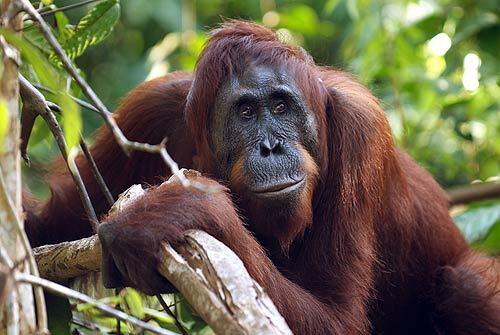
Trees are not only a crucial source of food for endangered orangutans in Borneo -- an island shared by Indonesia, Malaysia and Brunei -- but also provide the primates places to nest at night. (Paul Watson / Los Angeles Times)
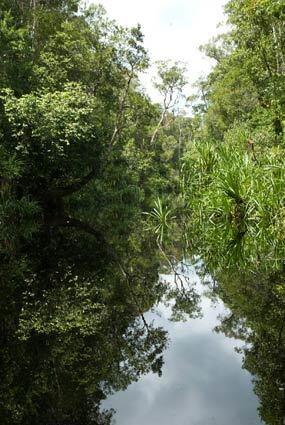
The black waters of Tanjung Puting National Park mirror the dense rain forest that is home to the Bornean orangutan, and increasingly being cut down for palm oil plantations. (Paul Watson / Los Angeles Times)
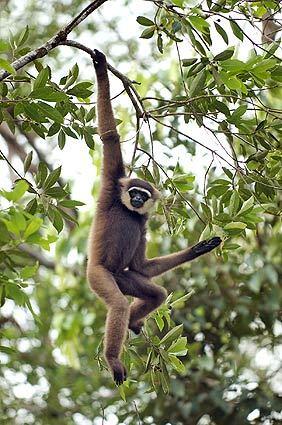
Gibbons are among several primate species in Borneo’s rainforest, which the
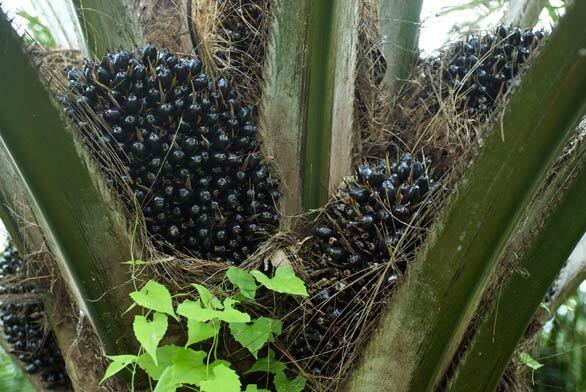
Palm oil exports earned $7.8 billion in 2007 for Indonesia, the world’s largest producer. (Paul Watson / Los Angeles Times)
Advertisement
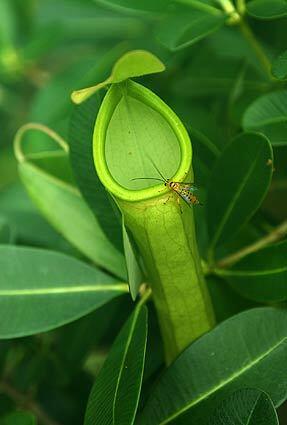
This pitcher plant is one of more than 15,000 plant species, 400 of which have been discovered since 1994, in Borneo’s rapidly disappearing rain forest. (Paul Watson / Los Angeles Times)
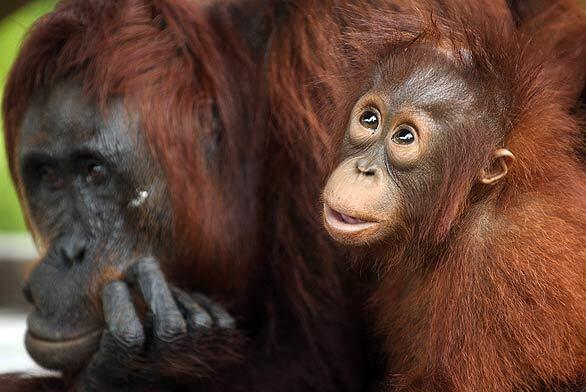
The population of Bornean orangutans has been cut by more than half over the last 60 years, and with the current population of between 45,000 and 69,000 declining at a similar rate, the species could be extinct by the end of the century. (Paul Watson / Los Angeles Times)
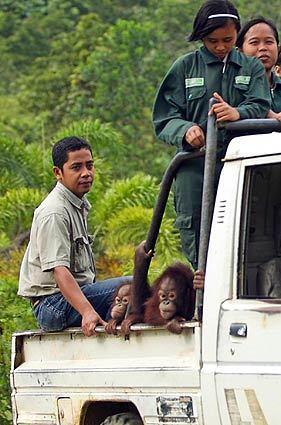
Young orangutans get a ride to forest school with their teachers, who instruct them on how to survive in the wild at the Borneo Orangutan Survival Foundation’s rehabilitation center. (Paul Watson / Los Angeles Times)







